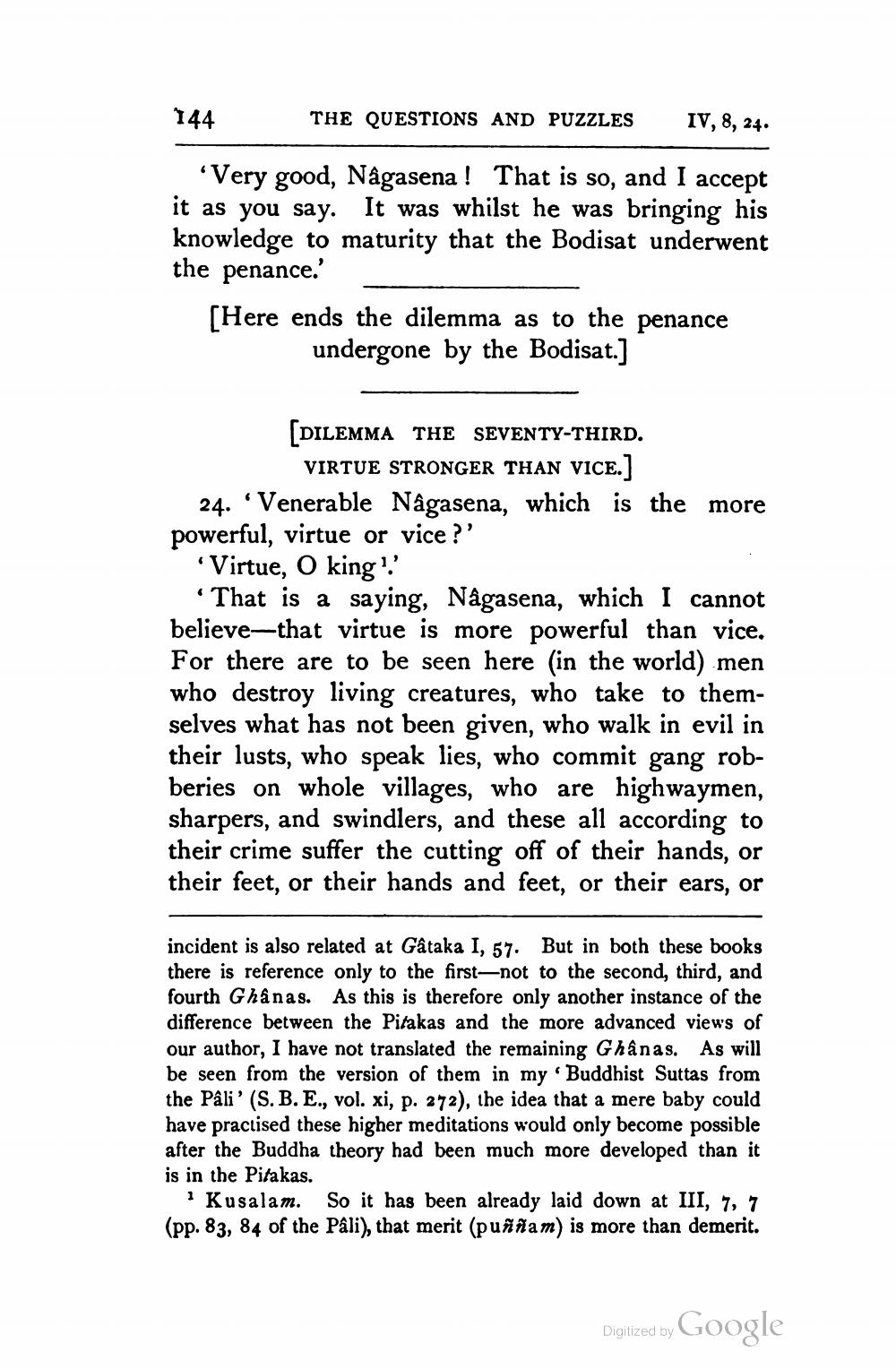________________
IV, 8, 24.
'Very good, Nâgasena! That is So, and I accept it as you say. It was whilst he was bringing his knowledge to maturity that the Bodisat underwent the penance.'
144
THE QUESTIONS AND PUZZLES
[Here ends the dilemma as to the penance undergone by the Bodisat.]
[DILEMMA THE SEVENTY-THIRD. VIRTUE STRONGER THAN VICE.]
24. Venerable Nâgasena, which is the more powerful, virtue or vice?'
'Virtue, O king'.'
'That is a saying, Nâgasena, which I cannot believe that virtue is more powerful than vice. For there are to be seen here (in the world) men who destroy living creatures, who take to themselves what has not been given, who walk in evil in their lusts, who speak lies, who commit gang robberies on whole villages, who are highwaymen, sharpers, and swindlers, and these all according to their crime suffer the cutting off of their hands, or their feet, or their hands and feet, or their ears, or
incident is also related at Gâtaka I, 57. But in both these books there is reference only to the first-not to the second, third, and fourth Ghanas. As this is therefore only another instance of the difference between the Pitakas and the more advanced views of our author, I have not translated the remaining Ghânas. As will be seen from the version of them in my 'Buddhist Suttas from the Pâli' (S. B. E., vol. xi, p. 272), the idea that a mere baby could have practised these higher meditations would only become possible after the Buddha theory had been much more developed than it is in the Pitakas.
1 Kusalam.
So it has been already laid down at III, 7, 7 (pp. 83, 84 of the Pâli), that merit (puññam) is more than demerit.
Google
Digitized by




